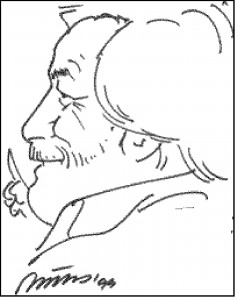We appreciate your help in funding this entirely volunteer publication. You can help us with a gift. Join Friends of ILR with a gift of US$10.00 or more. Thanks!
In recent times, thanks to individuals who believe that ILR is an academic journal, I have had the opportunity to hone my elevator speech about Integral Leadership Review. I respond by explaining that ILR is a bridging publication and that we attract subscribers and authors from a wide variety of domains, not just from the world of academia. Individuals in leader roles in business, government and not for profit organizations; academics and students; consultants and coaches; and individuals who are interested in many aspects of development and change, from economic to political, from individual to community, from technology to education comprise our subscribership of roughly 3300 subscribers in over 30 countries. Not only do we bridge domains, we bridge cultures as well as a wide variety of perspectives and ways of making sense and meaning about our world and ourselves.
Furthermore, as I continue my speechifying, as editor of ILR I have no expectation that every subscriber will have an interest in, or even a desire to read, every article in each issue. Nevertheless, as editor, I do strive to assure that every issue has something of value and relevance to subscribers across and within the many domains to which ILR attends. Also we hope, by offering such a wide array of articles, members of our readership representing one or more of the domains will be inspired to read something from different domains, thus building our community’s capabilities to see aspects of challenges and find paths to addressing them that might not otherwise be available. We are all learning from each other. In an interview published in October 2010 in ILR, Ken Wilber indicated that he saw us as neutral. Personally, I believe Integral Leadership Review is far from neutral. I believe we are an advocate for bridging—in Ken’s terms, transcending and including many points of view. Nevertheless, there are also ambiguous boundaries about what is included and what is not. I may have to address this in a future Leading Comments.
As a way of illustrating my point, two articles in this issue that may appear at first blush to be unapproachably “academic” are Sue McGregor’s “Demystifying Transdisciplinary Ontology: Multiple Levels of Reality and the Hidden Third” and Tom Murray’s “Some Limits of Developmental Theories and Their Integral Use.” Well, that is understandable. Look at the vocabulary necessary to discover what they mean. Yet each article is of vital interest to many, if not all readers. Each essay is pointing to critical issues surrounding how we make sense of our world and ourselves. Sue’s article helps move us past the dilemmas created by either/or thinking. Tom’s article helps us locate a practical perspective on our assumptions about learning and development. Academic? Well, yes. Meaningful, useful, and enlightening? Without a doubt. Both Sue and Tom’s scholarly articles speak to where each of us lives.
On the practical side, the world of action, what could be more useful than “An Integral Approach to Project Management” by Brad McManus and Ron Cacioppe, and “Leading in Uncertain Times” by Camden C. Danielson. And there is a case study in “Resilience Through The Integral Lens” by Maureen Metcalf and Belinda Gore. Each of these is focused on the world of business and being more effective or learning from those who have been able to apply integral ideas to the practical, material world.
When it comes to business leaders, try the interview with Laura Roberts, CEO, in Fresh Perspectives. Interested in higher education, check out my article on transdisciplinarity in a program in Australia. Like to read? Three book reviews. Or Leadership Emerging. If you see books you would like to read, click on the links to obtain them. This will help raise money for ILR; Keep ILR free! Don’t like to read? Try the Leadership Cartoon.
And back to the real world, the various Notes from the Field tell you about what people are doing out in the world through their integrally informed approaches.
As for different cultures, in this issue we have articles by folks who are living and working in ten or more countries.
So I hope I have made the case. ILR is a bridging publication. With our Bureau Chiefs and members of the Integral Leadership Council and subscribers, we have a network that spans the globe. Certainly, we are stronger in some areas than in others. But my aspiration is for ILR to be the bridging publication of choice for people interested in meta theories, integral theories and approaches, complexity theories and models, adult development approaches, cultural change, and systems in their many manifestations as they are being used in relation to the challenges we face on this planet from war, to politics, to development, to climate change—sustainability and generativity—to poverty and education.
I hope that you can find many bridges to cross in this and every issue.

